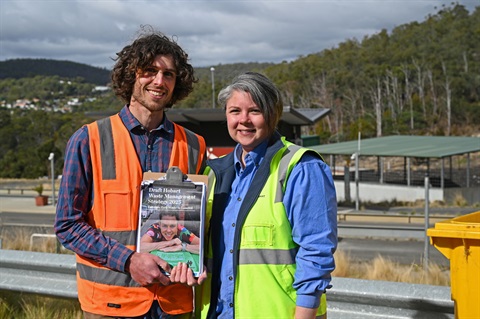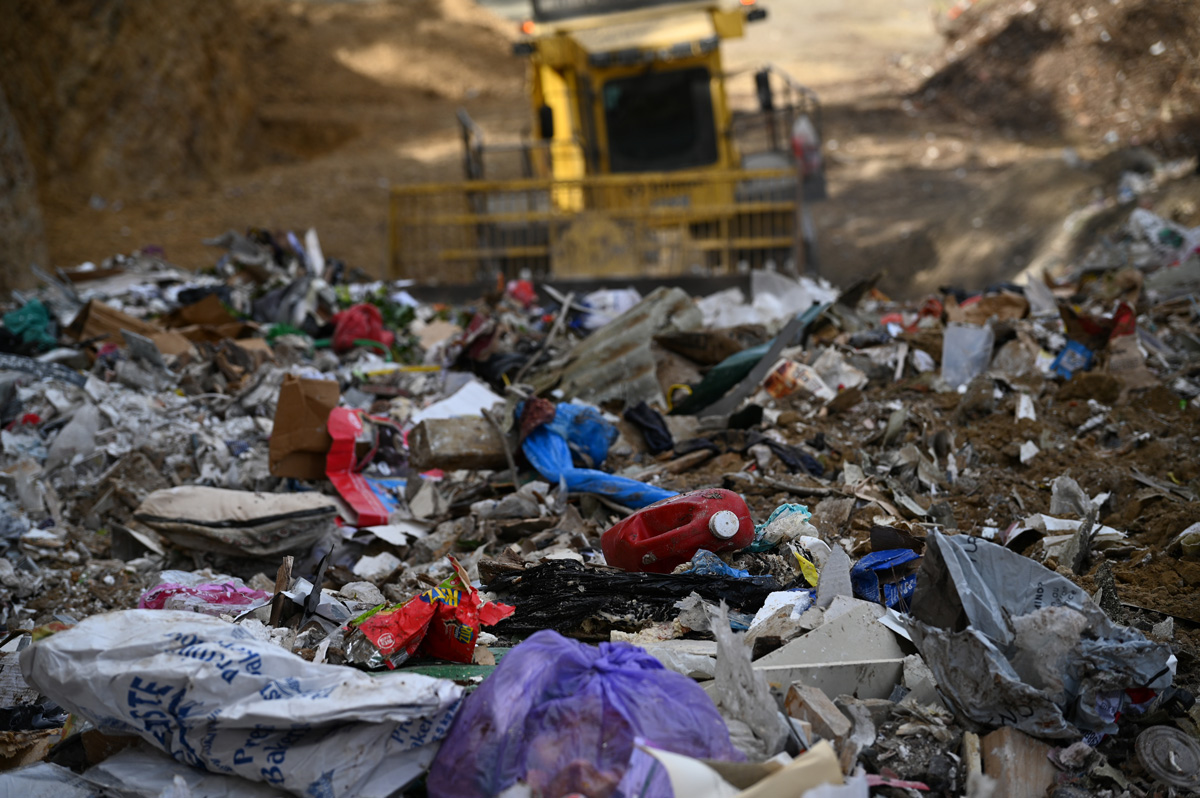
If there is one take home message from the latest audit of what Hobartians are putting into their kerbside bins, it is that we can, and must, do better.
Over the past year, on average, 62 per cent of the 'rubbish' ending up in our red-lidded bins could have been recycled or composted.
We're putting cardboard, paper, glass, plastics, food and garden scraps into our red-lidded waste bins, when they should be going into our recycling or FOGO bins.
Everything that goes into red-lidded bins is destined for landfill at McRobies Gully Waste Management - The Tip.
Once there it is crushed, compacted and buried beneath the ground.
The results of our latest kerbside bins audit are being used to inform our new draft waste strategy, which is out for public comment on the Your Say Hobart website.
Submissions must be in by Sunday 4 May 2025.
Your Say Hobart
 Waste collected from red-lidded bins being crushed and buried at The Tip.
Waste collected from red-lidded bins being crushed and buried at The Tip.
Waste not, want not
Last year Hobart generated 42 000 tonnes of waste, the equivalent of 730 kilograms per person.
If we keep going at this rate we will be producing 65 400 tonnes of waste every year by 2044, an amount that is clearly unsustainable as a society and a costly outcome for our environment.
That's why our new waste strategy aims to not just reduce the amount of waste generated by individual households, but also our dependency on having our own landifll site.
Hobart Lord Mayor Anna Reynolds said the new strategy includes include fulfilling the Hobart City Council’s commitment to closing McRobies Gully landfill site in South Hobart by 2030 at the latest and revitalising the area with improved resource recovery initiatives.
"We have an ambitious goal of diverting 85 per cent of Hobart's waste away from landfill within five years by radically increasing the number of people recycling and composting properly.
"We are also prioritising behavioural change, waste reduction targets, and transitioning to a circular economy – ensuring Hobart is prepared for a future without its own landfill site.
"Success in this war on waste requires a collective effort from residents, businesses and government.
"The simplest yet most impactful action you can take is to keep food scraps and garden clippings out of your red-lid general waste bin and instead use your FOGO bin, compost at home, or feed food left-overs to your chooks.”
Re-using materials is critical
Tom Crawford, pictured at the top of this story with City of Hobart Program Manager Waste and Circular Economy, Fiona McAlpine, is the General Coordinator at Hobart's Resource Work Cooperative.
He is really excited to see a focus on the re-use of waste products in Hobart's new draft waste strategy.
"I think there needs to be more emphasis on that higher level of the waste hierarchy before we look into recycling and other diversion practices," he said.
"Re-use is the critical measure and has the biggest impact.
"From a re-use perspective the one thing is to try not to buy new, buy second hand first. Go to tip shops, going to op shops is really important.
"Looking out for repair cafes, so if you have an item that is broken but think it could be fixed explore those, there are repair cafes in the city.
"The bike kitchen is a good example of trying to do that and it also encourages active transport and takes cars off the road.”